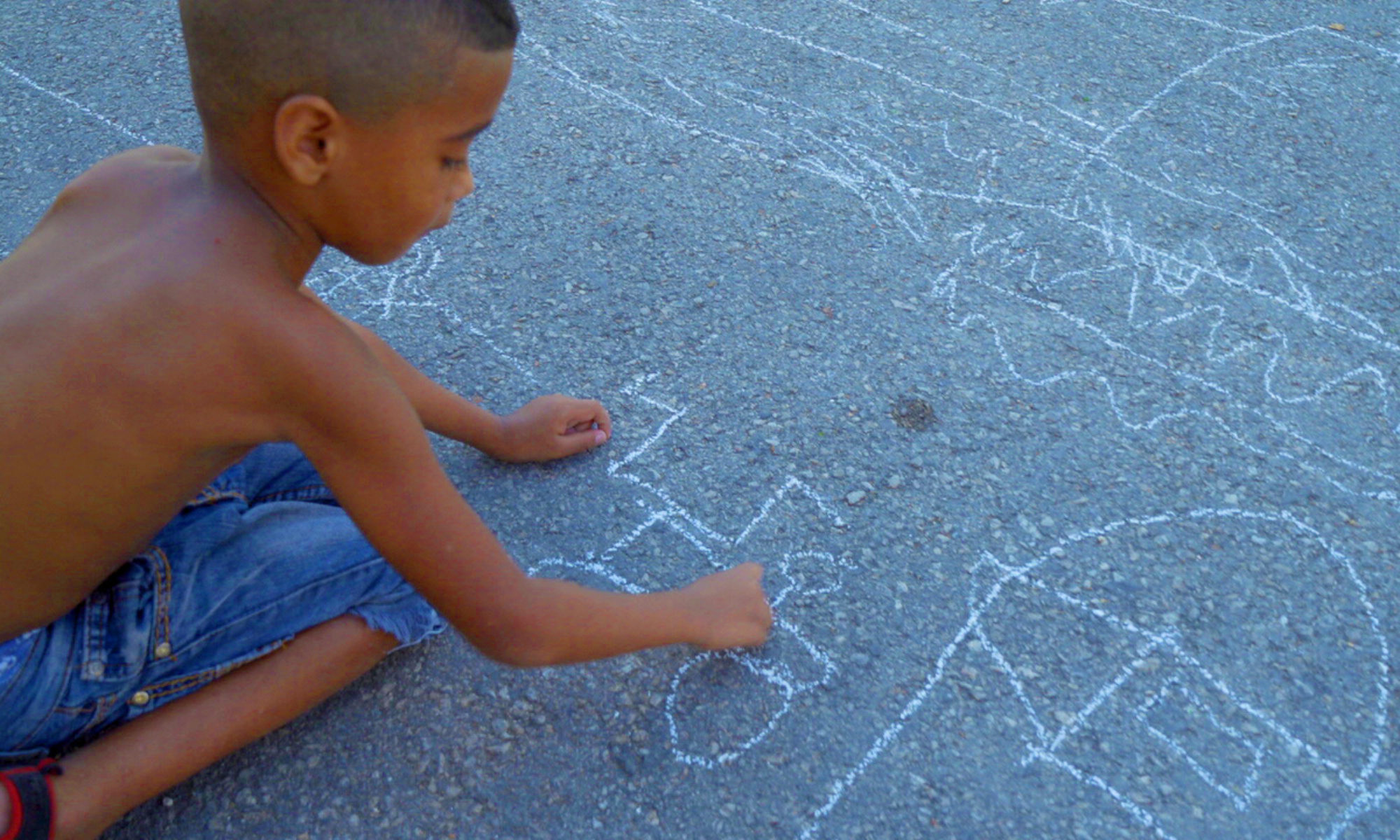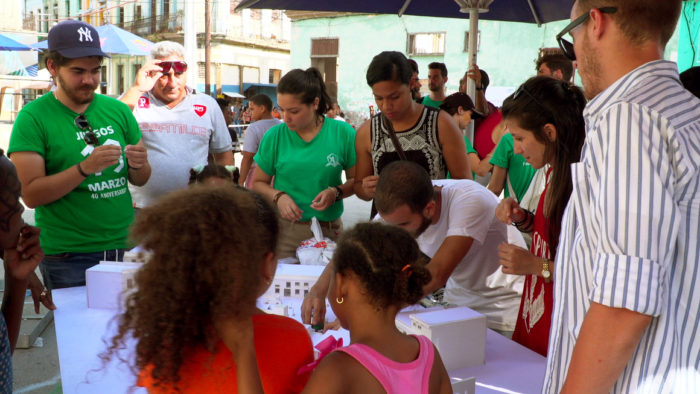
Research collaboration between UCL and Cuban partners has been in progress since 2013. So far, there have been four stages of activity:
Stage 1, 2013-14: Establishment of a collaborative network of researchers in the UK and Cuba, identify respective roles, and establish the overall objectives and basis for collaboration. Initial Briefing notes for a June 2013 workshop at UCL provided background on Havana’s transport challenges. Activities included presentations at International conference on Environment and Development and Sustainable Cities symposium; visit to UK by Cuban Ministry of Transport (Mitrans) researchers. Supported by UCL Grand Challenges – Sustainable Cities.
Stage 2, 2014-15: Workshop in Havana for officials and specialists. The Cuban ministry of transport, local authorities and researchers, as well as UK researchers, shared knowledge and perspectives on ‘movilidad para la ciudad que queremos’. UCL-Mitrans Memorandum of Understanding. Articles in Cities, Urban Design & Planning, and Temas (Cuban journal). With support from the British Embassy, Havana.
Stage 3, 2016-17: Public participation in urban transformation. Local workshops and activities within a vulnerable neighbourhood in Central Havana, led by academics of CUJAE’s Faculty of Architecture and involving local government and transport authorities, to galvanise debate, disseminate information and promote public participation in local initiatives. Initial pilot project for community involvement in promoting sustainable mobility. UCL input supported by the British Embassy, Havana.
Stage 4 (in progress), 2017-20: Improving mobility, accessibility and equity in Havana.
In this stage, building on previous work, project partners from UCL and CUJAE are developing a set of pilot projects to improve mobility and access, particularly for low-income and vulnerable groups, at the local level. The activities involve relevant Cuban authorities and community participation – see Mi Plaza Es Mas video short. Participants work together to develop a ‘vision’ for the future, and create initial demonstration interventions that highlight possibilities and the relationships between mobility, community assets, safety and health. To date, workshops have generated proposals for improving mobility, accessibility and equity in two pilot case studies: the Los Sitios neighbourhood and Parque El Curita.
July 2018 workshop on ‘Improving accessibility, mobility and public space in the Parque El Curita, Central Havana’: vision, debate, proposals.
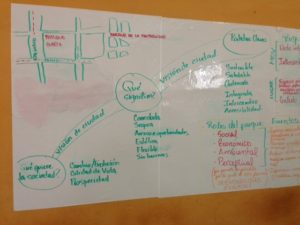
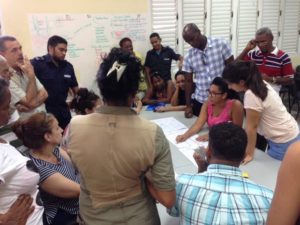
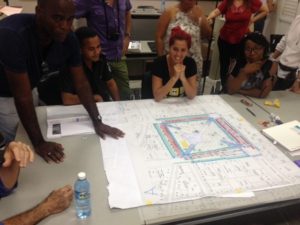
Participants in the workshops include members of the community, local artists, representatives of the neighbourhood council, municipal government, city transport authority and researchers from CUJAE and the UK. The relevant authorities are preparing to implement interventions based on these proposals, building towards a comprehensive, collective vision for inclusive mobility and access.
The research collaboration between CUJAE and UCL that provides the coordinating framework for this activity is also contributing to the development of an informal Sustainable Urban Mobility Research Network at CUJAE, including academics from a range of transport-related disciplines, known as RIMUS (Red de Investigacion de la Movilidad Urbana Sostenible).
On July 17th 2018, CUJAE hosted a seminar, Movilidad Inclusiva y Segura, which included presentations by three UCL professors, which stimulated a lively discussion among the students, academics and transport planners present. The presentations were:
- Professor Nick Tyler: Urban visions and the history of public transport (Las visiones de la ciudad y la historia de transporte para el público)
- Professor Peter Jones: CREATE Overview: Learning from the past, shaping the future
- Professor Julio Davila: urban transport, society and planning: approaches and evidence in three cases in Colombia (Transporte, sociedad y planificación urbana: Enfoques y evidencia en tres casos en Colombia)
On November 25th 2018 Rob Anderson, a consultant (CENEX consultancy, UK) presented a draft report on ‘Technology foresighting’ for Havana’s public transport vehicles. The presentation organised with the support of the UCL-Cuba Research Network, and was hosted by CUJAE’s RIMUS and attended by officials from Havana’s provincial transport authority.
On November 30th-December 4th 2018, members of the MAS+Havana team supported a workshop held at the University of Havana on ‘Accessing climate finance for mitigation-with-co-benefits in energy and transport‘. At the workshop, transport researchers and officials developed innovative ideas for mitigation of transport greenhouse gas emissions in Havana.
In January 2019, the MAS+Havana team helped to organise and participated in a seminar and workshop on transport and health, hosted by Cuba’s Instituto Nacional de Higiene, Epidemiologia y Microbiologia (INHEM).
